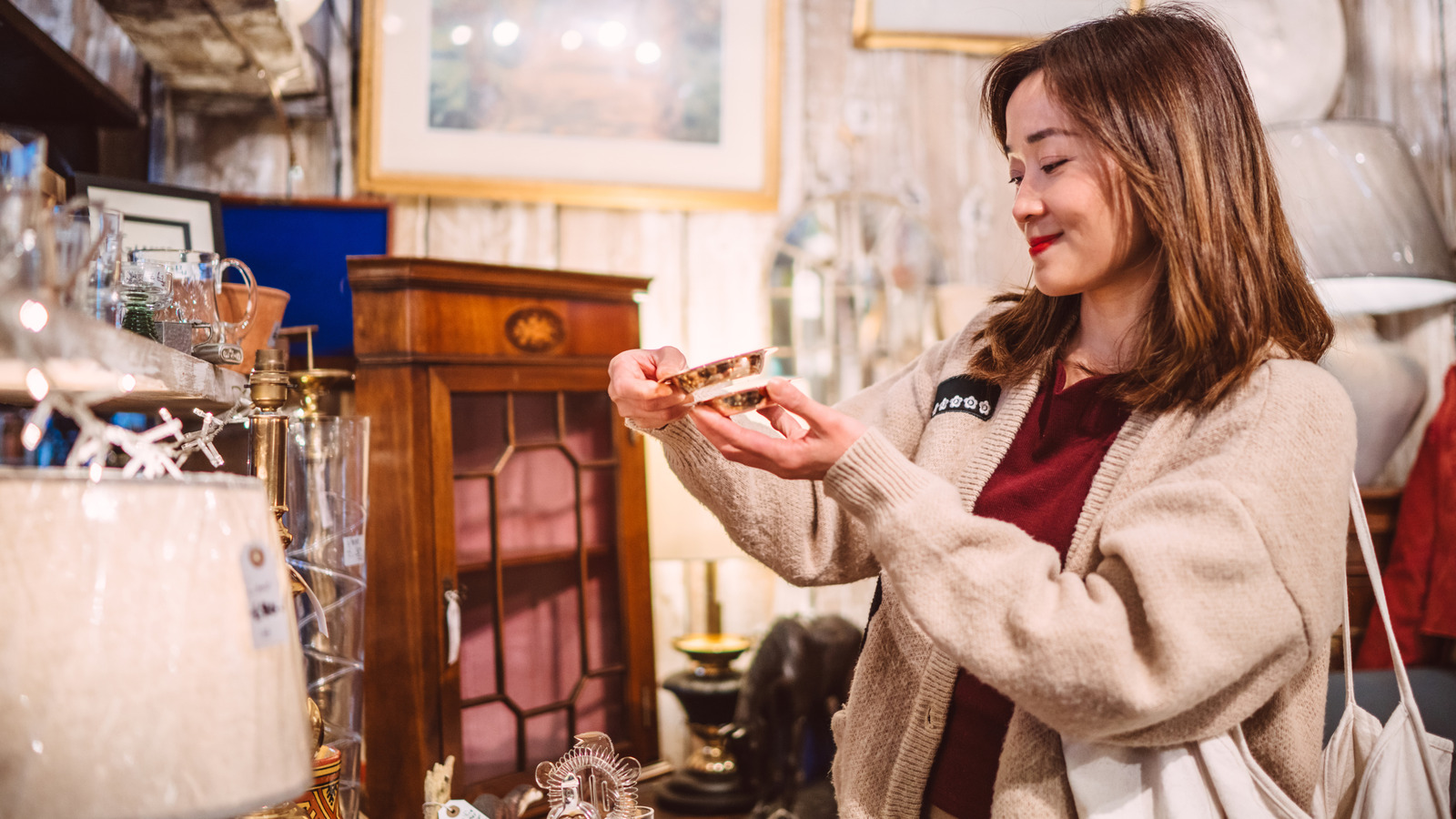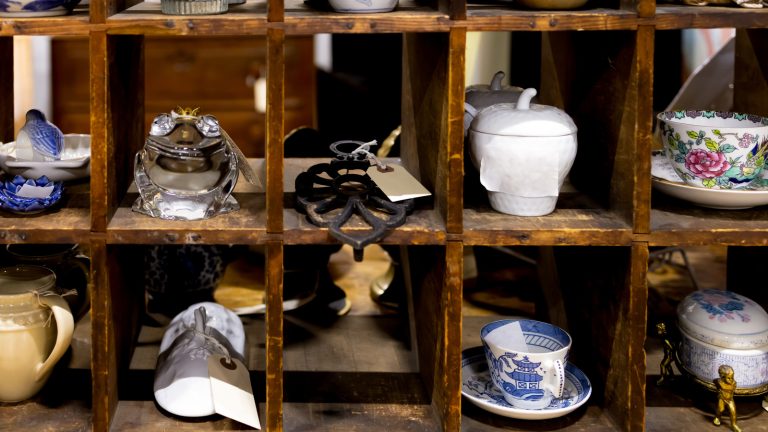Regular shoppers understand the allure of estate sales — from discovering unique items to securing great deals. However, even seasoned sale-goers may not always know the best strategies to snag these bargains or identify which pieces are worth prioritizing. If you’re new to estate sales and want to start reaping the benefits, you might be unsure of where to start.
Whether you’re a novice or an experienced estate sale shopper, we’ve compiled some crucial things to avoid during these sales. By learning from common mistakes others make, you can become a more savvy, prepared, and successful shopper. If you’re ready to learn what to avoid when seeking an estate sale — mistakes that could hinder your preparation, overspending pitfalls, and items not to overlook — you’re in the right place.
Not knowing how to find a good estate sale
Without knowing how to find a good estate sale, you can’t expect to score great deals on the items that matter most to you. Relying solely on word of mouth or local social media groups won’t suffice to discover the best sales. Instead, research local estate companies in your area. Monitor their websites or social media pages for information about upcoming estate sales.
Once you find listings, narrow them down by the neighborhoods or suburbs they’re located in. The location significantly impacts estate sale bargains. Events in more affluent neighborhoods tend to have higher-end items, though you’ll need to be prepared to spend more on them. Neighborhoods can also hint at the style of items available. For instance, an estate sale in an artsy city area might offer unique furniture and art, while a Victorian home in a historic district may have antiques. Conversely, a modern suburban home will likely feature contemporary finds. Checking online previews to assess the types of items available can also help determine if a sale is worth attending.
Shopping before hitting up the ATM
Although many estate sale companies can process electronic payments, not all do. Therefore, the top preparation tip for hassle-free estate sale shopping is to bring cash. Without cash, attending a cash-only sale will leave you empty-handed. Even if the sale accepts credit cards, you might incur a processing fee of around 3%.
To avoid setbacks, plan to visit the ATM on your way to the sale or the night before. If you’ve previewed the items, you’ll have an idea of your spending. Shopping with cash helps you stick to a budget — if you don’t want to spend more than $300, don’t withdraw more.
Not bringing everything you’ll need with you
You don’t want to realize you’ve forgotten something crucial at home after you’ve started shopping or are deciding if a piece will fit in your space. To prevent this, ensure you’re prepared with everything you might need before leaving home. A tape measure is essential to confirm that furniture or artwork will fit where you envision it (remember to take measurements of your home beforehand).
Consider how you’ll package any purchased items. Some unexpected essentials to bring include boxes, bags, and packing paper/bubble wrap for protecting fragile items during transport. However, avoid bringing everything into the sale with you. A bulky backpack filled with supplies might accidentally knock something over. Instead, carry a smaller purse or bag with essentials like your wallet, a measuring tape, and maybe a magnifying glass, and leave larger boxes and packaging supplies in the car.
Arriving late
While some shopping can be leisurely, you shouldn’t treat estate sales the same way. Arriving too late may mean missing out on the best finds. Additionally, many estate sales limit the number of people allowed inside at once, so arriving late may mean waiting even longer to enter.
To avoid this mistake, plan your visit at least a day in advance. Look up the sale’s start time, use your phone’s GPS to estimate travel time, and add extra minutes for traffic or delays. Instead of aiming to arrive at the sale’s start, plan to be there at least 15 minutes early. For highly anticipated sales, some experts suggest arriving an hour early to secure a spot in line (or receive a number for entry once doors open).
Failing to follow unwritten etiquette rules
The family or company hosting the estate sale might provide printed rules. However, even without formal guidelines, there are unwritten etiquette rules to follow. Ignoring these can make you appear rude or insensitive.
Key etiquette rules include being respectful. This applies to how you shop (avoiding running or cutting in line) and handling the property and items (handling with care, removing shoes if requested). Respectful behavior also extends to your language. Avoid making rude remarks about the home’s style, cleanliness, or vibe, as you don’t know who might be listening. If family members are present, remember they may be going through a difficult time, as sales often occur after someone’s passing or a major life change. Avoid asking questions that could be considered insensitive.
Trying to haggle — especially on the first days of the sale
If you’re new to estate sales, you might think they operate like yard sales, leading you to make a lowball offer on an item you want. However, estate sales differ from yard sales.
Typically, expect to pay the labeled price, especially on the first day. Negotiations are rarely allowed early in the sale, as the hosting company might wait for a buyer willing to pay full price. However, some companies may permit offers toward the sale’s end, so check with the host.
Not being picky when shopping for furniture
Furniture is often a major draw at estate sales, with many buyers acquiring valuable pieces for their homes or to resell. However, not every piece is a good buy. Damaged furniture may lead to a project that could fail, and its value decreases if it’s chipped or scratched. Similarly, without knowledge of furniture construction, you might overpay for a cheap piece because you can’t assess its value.
Go prepared with knowledge of the furniture to prioritize at estate sales. Solid wood pieces are valuable and easier to restore than those with veneer coatings. Assess a piece’s stability and construction quality by checking for wobbliness, dovetail joints on drawers, manufacturer stamps, and whether the back is wood or MDF.
Picking up just any piece of artwork
Overlooking artwork at an estate sale can be a mistake, but so can grabbing any piece without thought. Art is valuable, but avoid scams by requesting documentation and comparing signatures to other works by the artist. For prints, check for a number to gauge rarity — a print numbered 1 of 20 is rarer than 456 of 1,000.
While finding valuable art is important, consider your shopping goals. Are you seeking a living room focal point or something to resell? Your answer will guide your priorities. For example, if you love a piece for your home, its monetary value might matter less than if you plan to resell.
Buying items that are more trouble than they’re worth
Estate sales offer great finds, but don’t get so excited that you purchase items you shouldn’t. Prioritize items you’ll use, add to a collection, or resell, and weigh each purchase carefully to avoid buying something that requires more effort than it’s worth.
For example, vintage light fixtures and electronics might look appealing, but be realistic about rewiring them. Or if a scratched wooden dresser catches your eye, consider whether you’ll invest in learning how to refinish it. If not, you’re better off skipping items needing significant work.
Being afraid to ask questions
There’s no such thing as a stupid question, so don’t hesitate to ask anything on your mind. The sale organizers are there to assist and aim to sell items, so answering shopper inquiries helps achieve this. Ask specific questions about a piece’s history, age, or family connection, or general queries like finding items matching your home.
Don’t be afraid to call before the sale for more information. Speaking with an organizer can provide insights about items that interest you, helping you decide if they’re a good fit.






